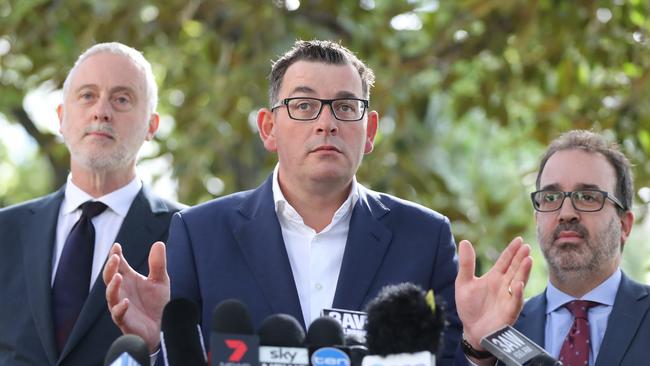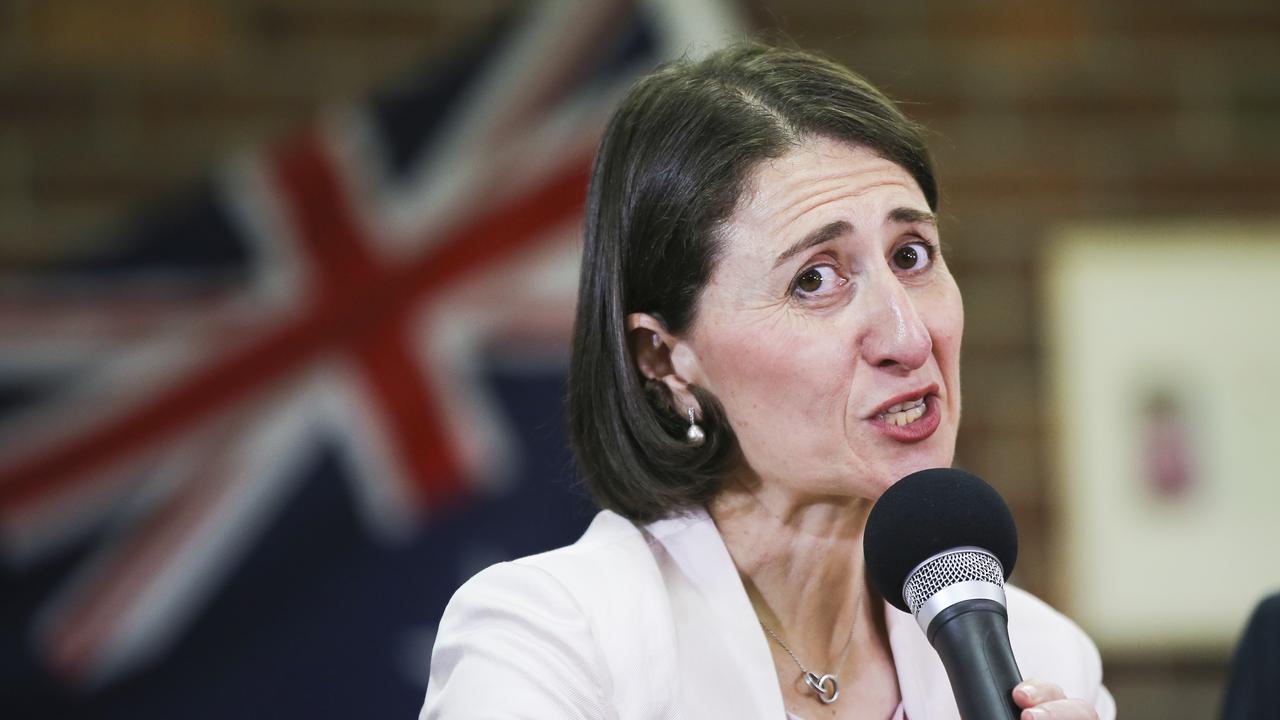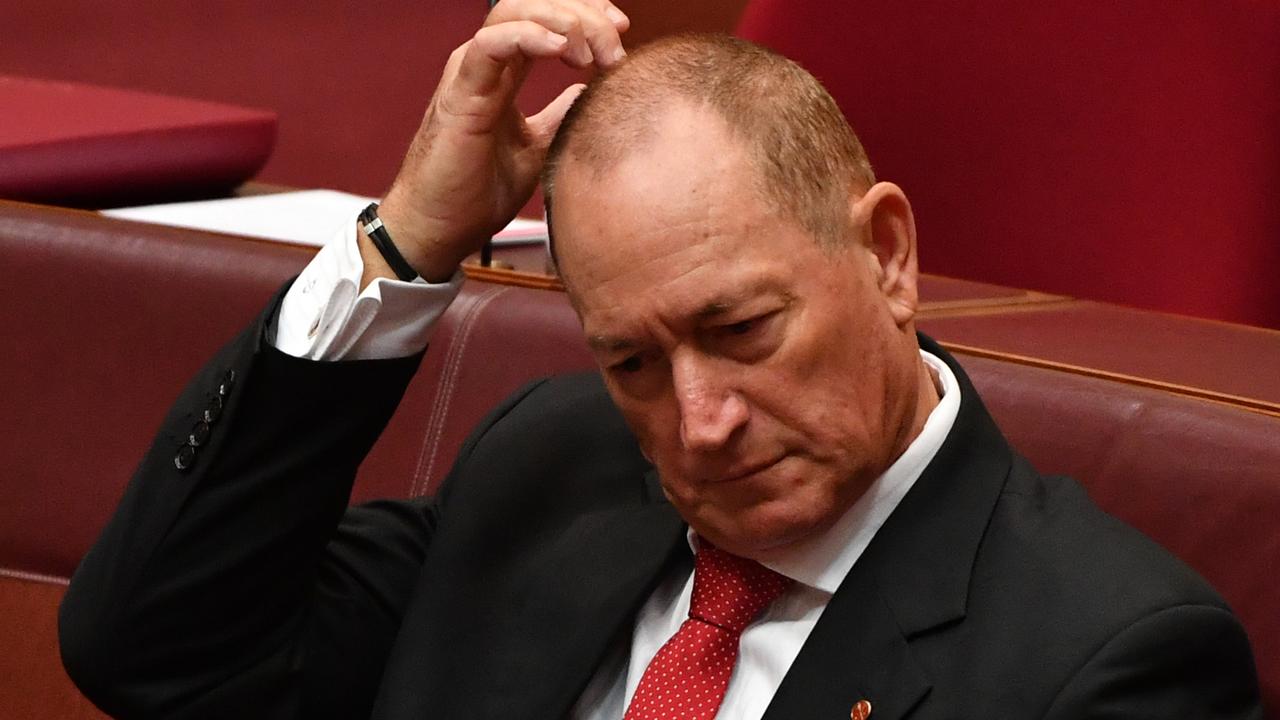
It’s been a wonderful week for the non-apology apology.
In Victoria, Premier Daniel Andrews is caught up in a scandal over his MPs, including six members of his cabinet, rorting office work entitlements, which allowed functionaries to be paid for party political campaign work.
Andrews did not offer the good people of Victoria an apology although he did say he was sorry that it had happened and that the money, some $388,000, had been repaid. He mentioned the repayment of the dough repeatedly almost as if he was practising phrases prescribed by a speech pathologist but in terms of an expression of regret, he got only as far as feeling sorry that it had happened once.
Feeling sorry that something has happened is the best form of non-apology apology there is, as it involves detaching one’s self from the regrettable event, like viewing a natural disaster from the living room and expressing a sense of anguish for those caught up in it while avoiding anything that approaches real contrition or personal responsibility.
To put it another way, it’s a sort of sociopath non-apology apology.
It is closely related to one of the other higher forms of non-apology apology, “I’m sorry you feel that way.” Or its alternate example, “I am sorry to anyone who felt offended by what I did while I was caught wandering the streets in my underpants in a ‘distressed’ state.”
Those who work in the bizarre world of public relations crisis management know these situations run by the numbers. Just as there are gradations of scandal and horrific conduct there is a clearly defined scale of response. Often even some of the best non-apology apologies simply won’t cut it.
In these instances, the delightful PR folk will advise their clients to get on the front foot, assemble a media throng and offer a sharper, more comprehensive non-apology apology. A dissembling reach for a higher form of sincerity, if you will, which comes with a non-excuse excuse. As in, “I am truly sorry for (insert specific source of appalling and possibly criminal behaviour) but I am a) addicted to non-prescription drugs or b) a sex addict. It’s been a very bad time for me. Now, I really must go to a) luxury rehab in America or b) my personal coastal retreat. No questions.”
The client then proceeds, tight-lipped, through the clamour and clambers into a black SUV, speeding away in the hope that everyone will have forgotten about his or her outrages in three months. Six months tops. Or, in the case of Kevin Spacey, three hundred years.
As an aside, sex addiction is an almost perfect non-excuse excuse as it is a psychological disorder that doesn’t actually exist or more specifically makes no appearance in the Diagnostic and Statistical Manual of Mental Disorders, which is the bible in such things. Bearing the burden of a malady that can’t be clinically diagnosed is an ideal situation for anyone facing the harsh glare of exposure. Like the existence of interplanetary extraterrestrials, it can’t be proven one way or another.
This week, Facebook founder and CEO Mark Zuckerberg found himself yet again feeling obliged to reach for a grab bag of non-apology apologies after it was discovered 270,000 responses to a Facebook quiz allowed data mining of the profiles of 50 million Facebook users, which were then turned over to Trump-affiliated political research group Cambridge Analytica in the midst of the US presidential election campaign in 2016.
After a long period of silence, Zuckerberg fronted CNN yesterday to tell the world, he too, was sorry for what happened.
“This was a major breach of trust, and I’m really sorry that this happened,” he said.
He also offered to front the US Congress and explain everything if “it’s the right thing to do”. In other words, if his lawyers think it’s a good idea. I’ll give you a hint, they won’t.

Zuckerberg has almost perfected the non-apology apology. Let’s face it, he’s had plenty of practice. Regrets, he’s had a few.
In 2010, he apologised for calling Facebook customers “dumb f***s” in an email he had written six years earlier to a friend for allowing him to access their data.
More recently, when the US Congress identified Russian interference of the 2016 election through specifically targeted Facebook posts, he initially dismissed his company’s role in it.
“After the election, I made a comment that I thought the idea that misinformation on Facebook changed the outcome of the election was a crazy idea,” he said. “Calling that crazy was dismissive and I regret it.”
When developing Facebook, Zuckerberg had to confront the problem of how to monetise what was essentially an intranet network of family and friends to its users.
It turns out how to monetise it was to hand personal data of Facebook customers over to data miners who want to make a quid out of them and their friends or indeed influence their voting behaviour.
It has become the quick and easy pathway to the billionaire’s club.
The best way to define the non-apology apology is to watch the apologiser’s behaviour post-apology. Examining the litany of non-apology apologies offered by Zuckerberg, it is clear he hasn’t changed a thing. He may have been sorry things happened, but he has done little to ensure they won’t happen again.
Indeed, it has got to the point where Facebook users might find their data safer if they switched to its Chinese counterpart, officially approved by the Chinese government, Weibo.
All right. That was a bad joke and I am sorry that it happened.






To join the conversation, please log in. Don't have an account? Register
Join the conversation, you are commenting as Logout